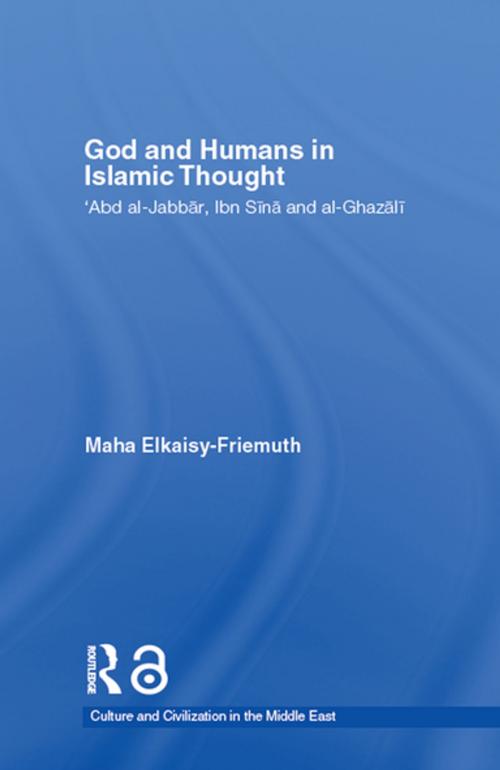God and Humans in Islamic Thought
Abd Al-Jabbar, Ibn Sina and Al-Ghazali
Nonfiction, Social & Cultural Studies, Social Science, Cultural Studies, Ethnic Studies, Religion & Spirituality, Philosophy, Religious| Author: | Maha Elkaisy-Friemuth | ISBN: | 9781134146758 |
| Publisher: | Taylor and Francis | Publication: | September 27, 2006 |
| Imprint: | Routledge | Language: | English |
| Author: | Maha Elkaisy-Friemuth |
| ISBN: | 9781134146758 |
| Publisher: | Taylor and Francis |
| Publication: | September 27, 2006 |
| Imprint: | Routledge |
| Language: | English |
Winner of The Iranian World Prize for the Book of the Year 2007 in the Philosophy and Mysticism category.
This new and original text provides a timely re-examination of Islamic thought, presenting a stark contrast to the more usual conservative view.
The explanation of the relationship between God and humans, as portrayed in Islam, is often influenced by the images of God and of human beings which theologians, philosophers and mystics have in mind. The early period of Islam reveals a diversity of interpretations of this relationship. Elkaisy-Friemuth discusses the view of three scholars from the tenth and eleventh century: Abd al-Jabbar, Ibn Sina and Al-Ghazali, which introduce three different approaches of looking at the relationship between God and Humans.
God and Humans in Islamic Thought attempts to shed light on an important side of medieval rational thought in demonstrating its significance in forming the basis of an understanding of the nature of God, the nature of human beings and the construction of different bridges between them.
Winner of The Iranian World Prize for the Book of the Year 2007 in the Philosophy and Mysticism category.
This new and original text provides a timely re-examination of Islamic thought, presenting a stark contrast to the more usual conservative view.
The explanation of the relationship between God and humans, as portrayed in Islam, is often influenced by the images of God and of human beings which theologians, philosophers and mystics have in mind. The early period of Islam reveals a diversity of interpretations of this relationship. Elkaisy-Friemuth discusses the view of three scholars from the tenth and eleventh century: Abd al-Jabbar, Ibn Sina and Al-Ghazali, which introduce three different approaches of looking at the relationship between God and Humans.
God and Humans in Islamic Thought attempts to shed light on an important side of medieval rational thought in demonstrating its significance in forming the basis of an understanding of the nature of God, the nature of human beings and the construction of different bridges between them.















